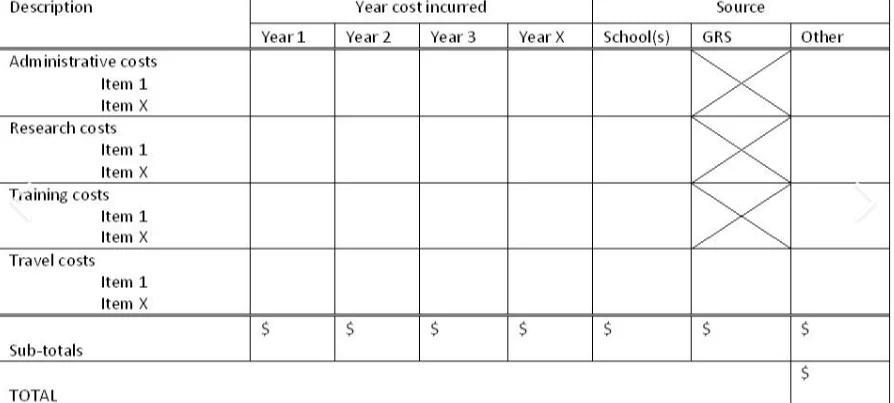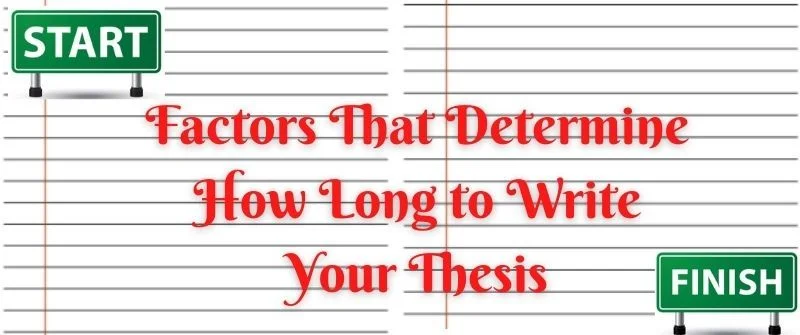A thesis is a very vital document that professors use to evaluate your level of understanding of a particular topic. Students should showcase their skills on their capability to construct facts logically. How long does it take to write a thesis, is there a time frame for such?
Writing a thesis is an excellent way to prove your critical thinking skills and successfully pass your message in the written form.
How Long does it Take to Write a Thesis?
The time limit for one to write a thesis depends on several variables. For instance, if you are writing a Ph.D. thesis paper, it may take you months or years to complete it. However, ensure that you adhere to the institution’s guidelines about the timeframe.
Mostly, it takes an average of 7 months to write a thesis from scratch to the defense stage. Our research of hundreds of students showed that it takes between 3 months and 7 months to complete a dissertation for most on-campus students and around 10 months for off-campus students.
However, this depends on the technicality of the topic and the depth of research done.

The most critical part of thesis writing is quality. You should ensure that you perform extensive research to meet the expectations of your professor.
The secret lies in working with your supervisor at every stage closely.
Suppose the institution gave you the page limit to indicate how far you can extend, then it also determines the duration you will take to complete your thesis.
The secret lies in sticking with the instructions as you handle that task.
Factors Determining the Time to Complete a Thesis
Your thesis could either take a long or short time, depending on different factors. More significantly, students should ensure that they perform thorough research to avoid shallow content that could land them in trouble.
Nevertheless, the following points will affect your speed of completion. Also, these factors come into play when determining the quality of your project.
It should be noted that the quality of the content determines if you will fail your dissertation or get a good grade. So, let us check them out.
1. The Depth of Research
When writing your thesis, the most crucial section is to have enough facts to support your arguments. How do you achieve that? Well, you have to dig deeper to get extra details that will keep your points well for the audience to digest them fully.
You can use different research methods to widen the topic. In a similar fashion, it may be time-consuming hence making your thesis writing take longer.
When you are researching an exciting topic, the chances are high that you are likely to gather more facts in your research. As you capture more details in your thesis, your paper will be long and take you more time.
While supporting your arguments, it is sensible to put more facts and evidence as possible to make your research authentic. Once given the challenge to substantiate some claims within your research, you should do so convincingly.
On the contrary, if you did shallow research, you will only capture a few details, making you short of completing your thesis.
As a rule of thumb, the longer the investigation, the longer the time to complete writing. If you have few facts to back up your arguments, it means your entire paper will take you less time to finish.
Some degrees do not require deep research while others need deeper primary study. For instance, a non-thesis master’s is worth it because it does not go deep into technical research compared to a thesis one.
2. Your Writing Skills
Your writing prowess is a crucial factor in determining the duration you will take to complete your paper. Some authors have excellent writing skills by knowing what to say to place their points creatively.
For instance, they can get the reader glued to the paper by painting an exciting situation where you want to know more about it. For that reason, the author may be tempted to use more words, hence extending the completion period.
Suppose the author has comprehensive experience in writing, it means it can still take a short duration to place the fact found in research in a short period.
On the other hand, if the author lacks a great writing experience, it implies struggle. This writer will be challenged to articulate the facts; hence, he needs more time to express himself.
3. Your Typing Speed
Different authors have varying typing speed skills. For example, a professional could type a hundred words per minute, while a poor could take even less than 20 words per minute.

When given similar tasks, the one who types more words per minute is likely to complete the job than the writer who has a slow speed.
If you know that your typing speed is poor, you can consider sharpening your skills through software that addresses that area.
The most common ones are typing master and so on. Also, your typing speed determines the length of your thesis because faster typers can extend their length compared to slower ones.
4. Graduation Time
When the clock is ticking, it creates some panic or anxiety in you. For example, completing the thesis on time gives you an edge if you want to graduate that particular year. You should dedicate yourself to speedy completion while putting quality first.
If you write a poor thesis, you will fail and eventually not graduate that year. Luckily, you can take your time and research your topic well before presenting it to the defense panel.
Working smart is critical. Let your supervisor guide you at every level before you develop a refined document that will make you pass and graduate within the agreed timeline.
5. Professor’s Instructions
Students should liaise with the professor to ensure that they act within the institution’s guidelines. For instance, if the instructions prompt you to write additional pages, then it means that you may take a more extended period to complete your thesis.
Also, your academic level may require you to write more pages than others. For example, if you are a Ph.D. student, you can handle more pages than a master’s student. For that reason, you will require additional time to come up with an unacceptable document.
Let the instructor advise you on the number of page limits you are expected to fulfill. One way to ensure that you stick to the page limit is to perform extensive research to gather more evidence and examples.
The more the page limit, the more it takes for you to complete your thesis.
6. The Deadline Given
When you are working under a short deadline, it means you have to put more effort into coming up with a convincing thesis. You have to increase the pace of your research and develop unique content within the given timeframe.
Suppose you believe the timeframe is too short, then outsource your work to an expert who can make things work for you efficiently. Let your writer give you a progress report so that you stick to the deadline.
On the other hand, you should take your time and research well if you have the luxury of time to handle long timeframes. Here, you have an ample allowance to get more facts to incorporate into your work and write compelling content.
7. Topic Type
The type of topic you will settle for will determine how far you go in your thesis writing. If you want to provide extra details, your topic will be broader; hence, you need more time to accomplish it.
If you are tackling a complex topic, begin by breaking it down into small sections or subtopics so that your points remain clear to your audience.
On the other hand, suppose you are writing an easy topic, it means you will be discussing simple items that do not require more profound research. In response, your work will take a shorter period.
8. Your Budget

If you want to get a decent essay, you are free to hire an expert to do so. What makes the cost high is the number of pages you want the expert to craft for you.
Some students may have enough money to pay for more pages to ensure the expert does a great job. This will also demand additional time for completion.
Also, if you lack enough funds, it means the writer will minimize the pages to suit your needs. Since you are working on fewer pages, then the period of writing will also be short.

